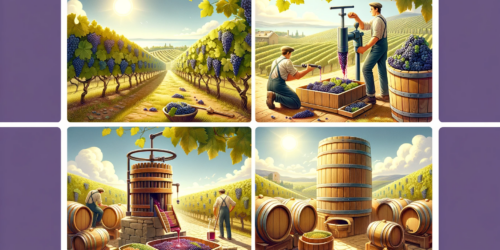My Aversion to the Artisanal
by Anna Scott
There are a few words or phrases that strike fear in my heart and freeze my soul – ‘flock of pigeons’ (terrified of the things), ‘freestyle acid jazz’ (don’t get me started) and, more recently, ‘artisanal’. Or ‘artisan’. Either will do the trick. Words so squirm-inducing they make my teeth itch.
Is this a completely unfair prejudice?
Surely in the world of wine, artisanal producers can only be a good thing?
Well, it’s not the actual bottles I object to – like all wines, these should stand or fall on their own merits – but it’s more the ever-increasing use of this term as a benchmark of supposed quality. If a wine producer describes itself as artisanal then it’s somehow automatically assumed that their wines are superior to a company’s that doesn’t choose to adopt this label. So what does it actually mean?
Well, according to the Oxford Dictionaries official definition, in the context of food and drink, ‘artisan’ refers to something ‘made in a traditional or non-mechanized way using high-quality ingredients.’ Even the most scaled back of operations can’t claim to be completely non-mechanized these days, so does this amount to nothing more than a marketing term? The sub-heading for London’s annual RAW Wine Fair is now ‘The Artisan Wine Fair’ and this occasion is a celebration of, in their own words ‘one of the most exciting collections of fine, natural, organic and biodynamic wine artisans ever to come together in the capital’. So artisanal wine is all about being chemical-free too then? I’M CONFUSED.
Like many labelling terms that aren’t subject to wine laws, these words are very much open to a large degree of interpretation. Whether artisan means ‘natural’ or ‘handmade’ or even ‘this product was created by someone who thinks of themselves as an ‘artiste’ and so therefore will charge you as exorbitant amount of money for said product’ I think we can agree that the word is being used more and more frequently these days which in itself it an indication that it is perhaps loosing whatever meaning it once had. I mean, when Domino’s starts advertising an ‘Artisan Pizza’ then maybe we need to start using a different word to indicate quality.
If an artisanal wine producer is one who pays attention to the whole viticultural process in great detail, making sure their wines reflect the unique characteristics of the soil and grape variety with minimal intervention, then surely this is the basis of all good wine? Describing a wine as ‘artisanal’ doesn’t necessarily mean it’s good, just like describing a wine as ‘commercial’ doesn’t necessarily mean it’s terrible – genius and laziness are surely abundant in both of these categories. Maybe it’s about time we reclaimed the term ‘artisan’ for what it really means.
Robert Joseph brings a different perspective to this whole business, making an interesting point in this article about the differences between artists and artisans and how winemakers would do well to consider themselves the latter a bit more often, adhering to the traditional definition of ‘artisan’ as someone using skills to create a product ‘fit for purpose’. If this is the case, as opposed to using the word as an annoying marketing tool, then perhaps I might start liking it a bit more.
But until then, please, please, don’t make me type it out again.
Anna Scott was first tempted into a job in the wine industry after a last minute camping trip to Margaret River provided some much needed career inspiration. She worked in wine retail for many years before parenthood rendered crazy evening shop hours impossible. Now she writes for a living, covering the strange combination of subjects that is wine, food, west London, politics and kids’ books.





